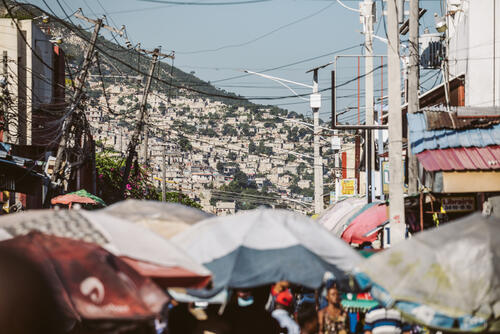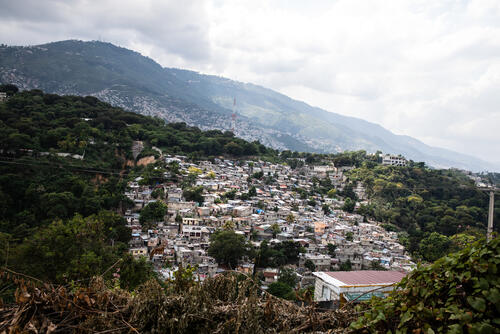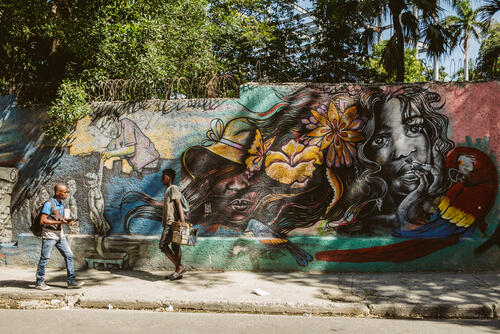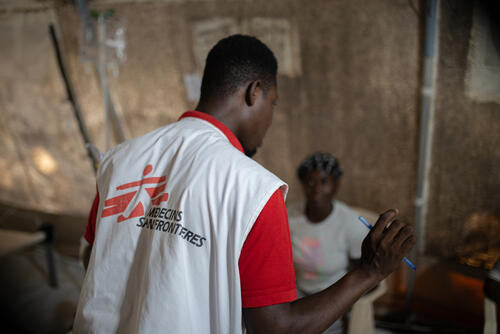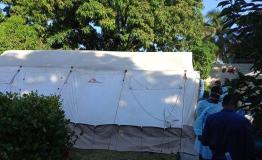- Recent violence in Port-au-Prince, Haiti, is resulting in an influx of wounded people arriving at medical facilities.
- The violence is also trapping people in their homes and neighbourhoods, with barricades being placed in the streets.
- MSF is receiving wounded people in two medical facilities as other hospitals in the area struggle to remain open and keep up with the increase in patients.
Port-au-Prince- The recent violence in Port-au-Prince, Haiti, has resulted in more than 96 people with gunshot wounds being received in Médecins Sans Frontières (MSF) medical facilities since 24 April.
From 24 April to 7 May, clashes between armed groups in the northern part of the capital have resulted in an increase of wounded people arriving at the MSF hospital in Tabarre, one of the few remaining health facilities in the area.
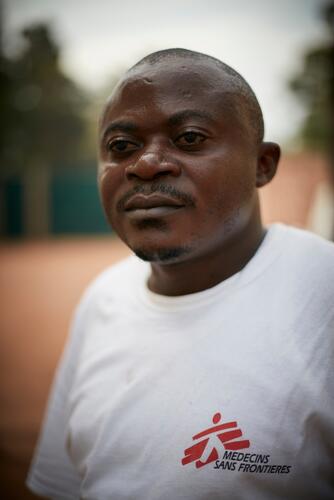
“The number of trauma admissions received per week has tripled compared to mid-April,” says Mumuza Muhindo, MSF head of mission in Haiti. “Most of them are very serious gunshot wounds that require extensive care.”
The street clashes have had a dramatic impact on access to medical care. In the north of the city, which has been particularly hard hit by the violence, five medical facilities were not functional during this period. Two other private hospitals suspended their activities after one of their employees was kidnapped.
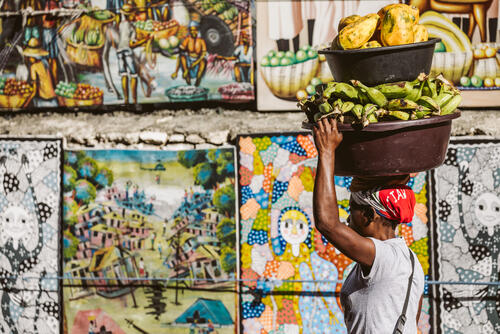
“I went to two hospitals before arriving at the MSF hospital in Tabarre,” says an MSF patient with a leg injury. “One was closed, the other did not have the means to take care of me. They had to use my clothes and those of the motorcycle cab driver to bandage me and contain the bleeding.”
Barricades in the streets are preventing the movement of vehicles, including ambulances. With no means of transportation, some patients have arrived more than 24 hours after being wounded.
MSF closed its emergency centre in Cité Soleil, Drouillard, on 1 April because of security concerns. With the current need for medical assistance, we have chosen to reopen this emergency centre in spite of the insecurity in the area.
“Maintaining functioning medical structures in these conditions is a daily challenge,” says Serge Wilfrid Ikoto, MSF medical referent at the Tabarre hospital.
“Some of our local medical staff cannot go home. They are at enormous risk every time they travel,” says Serge. “We organize 24-hour rotations to limit their movements, but some of them have not returned home for several days in a row.”
In Brooklyn, a densely populated neighbourhood, all access roads were blocked at the height of the clashes. People were trapped, as no one could enter or leave the neighbourhood without becoming a target. Even drinking water became scarce because the water trucks that usually supply Brooklyn could not enter or leave.
In other neighbourhoods affected by the armed clashes, many people have fled their homes and are now displaced.
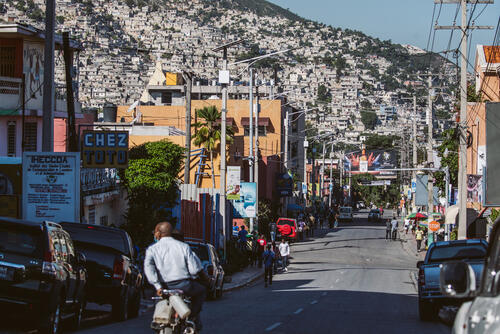
“They set fire to my house, I lost everything,” says a young woman who was shot in the legs and is now receiving treatment at an MSF medical facility. “I'm haunted by the idea of having to go and live in a displacement camp when I get out of the hospital.”
Recurrent and widespread violence are paralysing the health system in Port-au-Prince. Struggling medical facilities are overstretched by the needs of large numbers of wounded patients. Receiving an influx of wounded people means the facilities have less capacity to treat new and existing patients with other needs.
“Haitian people are in an extremely vulnerable situation,” says Mumuza. “Families displaced by the violence need assistance as the cost of living increases day by day and quality health care is inaccessible. A larger and better-adapted humanitarian response is urgently needed.”



